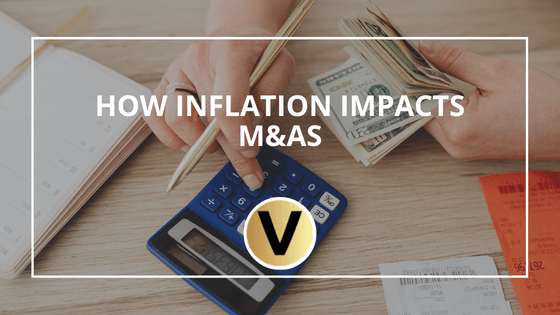Inflation is a top concern for investors as it can weaken the US dollar’s purchasing power and decrease its value. Since 2021, the US has experienced faster-than-predicted increases in inflation. Other central banks worldwide are also raising interest rates to combat this.
Rising inflation and the increased risks associated with the supply chain also contribute to the increasing business costs. This can affect the valuation of companies looking to expand their operations. Understanding the various effects of inflation on mergers and acquisitions (M&A) is crucial for investors. If you plan on making a deal, you must understand the multiple factors that affect the deal’s success.
Due to the rising cost of doing business, buyers and sellers will likely see more negotiated purchase prices. They’ll also have more extended exclusivity periods and more flexible payment methods.
Drop in Purchase Prices
If the cost of doing business increases, buyers might start offering lower purchase prices. This could be a tactic that both parties use to negotiate a better deal. In February 2022, the value of M&A transactions decreased by 74.4%. Before you start negotiating a lower purchase price, the seller and the buyer must talk to their lawyers about the various factors affecting the deal’s success.
Changes in Payment Methods
Due to the rising cost of doing business, both parties might consider other payment methods. This could be a tactic that they use to negotiate a better deal. Since the buyers are less likely to pay cash at closing, they might consider other payment methods such as promissory notes, installments, and rollover equity.
Longer Exclusivity Periods
During times of inflation, both parties must understand the terms of the agreement. This can be done through the negotiation of an extended exclusivity period. Usually, the buyers request a longer exclusivity period to give them more time to conduct a thorough due diligence review.
What You Can Do
Buyers might not offer higher purchase prices due to their concerns that the deal’s ultimate payout might not be as good as it would be if it were in a non-inflationary environment. However, sellers can also demonstrate their ability to grow their profits faster than the inflation rate by providing data related to their units sold and the dollar value of their assets.
Although inflation can affect the sale process, it shouldn’t prevent the parties from working together to negotiate a better deal. Both parties should regularly talk to their lawyers about the potential implications of the rising cost of doing business.

